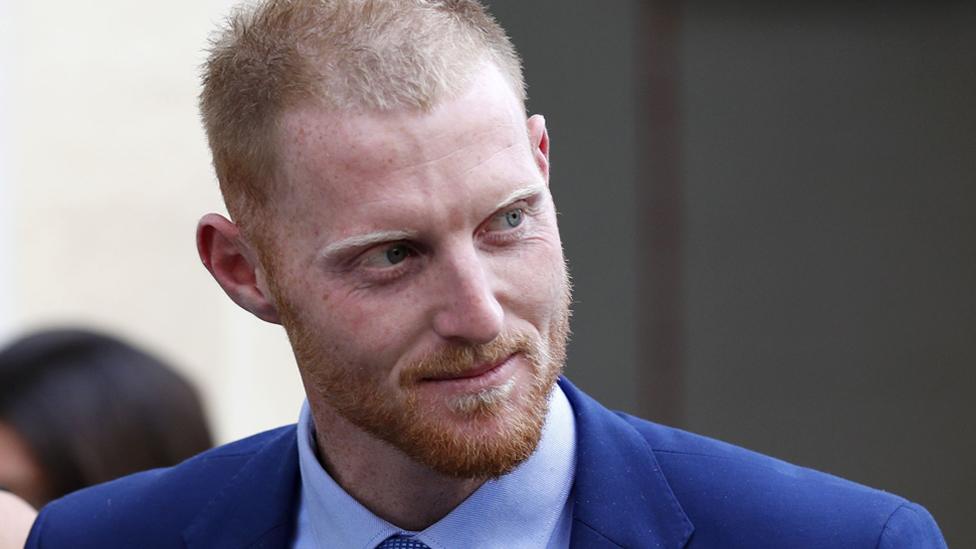'ECB must strike right balance when investigating Ben Stokes and Alex Hales'
- Published
Ben Stokes' lawyer, Paul Lunt, said the jury’s decision fairly reflected the truth of what happened in Bristol that night.
Ben Stokes was found not guilty of affray at Bristol Crown Court on Tuesday but the England and Wales Cricket Board has to strike a delicate balance when conducting its own investigation into last September's events near to a Bristol nightclub.
The England all-rounder, along with team-mate Alex Hales, was involved in a street fracas in the early hours of the morning which left one man unconscious.
There has to be an internal disciplinary process, which will be led independently by the Cricket Discipline Commission (CDC), and to think Stokes can walk away from court and for nothing further to happen is unrealistic.
He and Hales - who was not charged in this case after being interviewed under caution by police - will have to answer a charge of bringing the game into disrepute.
They were out in the early hours of the morning midway through a one-day series in which Stokes was vice-captain, and just hours before the Ashes squad was announced.
The board are likely to take a very dim view of the events which occurred and, unfortunately, those CCTV images will never go away. They have been seen far and wide and are not representative of the behaviours people expect from international sportsmen.
The disciplinary process will not begin until after the third Test against India, which starts on Saturday, hence the reason why Stokes has been added to the squad for that match at Trent Bridge.
There are those who say Stokes has already been punished because he was not part of last winter's Ashes tour of Australia, but it is important to remember Stokes was not suspended for that tour.
The ECB simply did not want to select a player while a police investigation was ongoing.
Once Stokes was charged, and a court date set, he was recalled to the squad for the series in New Zealand at the back end of England's winter programme.
In the intervening period, Cricket Australia suspended two of their players - Steve Smith and David Warner - for a whole year for their role in the ball-tampering scandal in South Africa. Young batsman Cameron Bancroft was given a nine-month punishment.
That will be seen by many as a guide, but again I stress that the ECB and the CDC must establish if Stokes and Hales brought the game into disrepute first.
They will also be aware that the sanctions handed down by Cricket Australia were what they perceived to be right for the game down under and the ECB are not tied to anything their counterparts have done.
There will be a wider inquiry into the events of that night in Bristol - I'm absolutely sure of it - because questions have to be asked why a number of players were out so late midway through a series. However, the authorities must ensure they consider their response carefully.
They need to ensure they do the right thing by Stokes and Hales, while considering the wider picture of the game's image.
Both issues are important, hence the need to strike the right balance.
Jonathan Agnew was speaking to BBC Sport's Marc Higginson.
- Attribution
- Published14 August 2018
